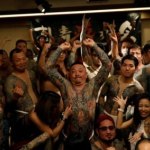06 November 2020
Hnin is a teacher in Myanmar. As a girl, she had great respect for Aung San Suu Kyi, the former opposition leader who now leads the country. But when Myanmar holds elections on Sunday, Hnin will not vote for her.
This will be the second general election since the end of military rule in 2015.
Aung San Suu Kyi's National League for Democracy (NLD) is expected to win again on the strength of its leader's strong popularity. Hnin, however, says the Nobel Peace Prize winner failed to keep her promise to unite the country, also known as Burma.

State Counselor Daw Aung San Suu Kyi, Myanmar's de facto leader, fills out a ballot in her country's election, in voters in Naypyitaw, the nation's capital, Oct. 29, 2020.
"I have no more trust in her," said the young woman. She added "the path she is trying to take towards democracy is impossible."
Aung San Suu Kyi's party won by a very large victory in 2015. Myanmar in 2020, however, is facing problems that she does not seem able to solve. In addition to the coronavirus health crisis, there is rising economic hardship and growing ethnic and civil conflicts.
Hnin is one of many activists from a student group responsible for anti-government protests and leaflet campaigns across the country in recent months.
The All Burma Federation of Students Union is calling for a boycott of the general election.
Its campaign has been met with a sharp crackdown. Nine of the group's members have been sentenced to prison, two of them to five years. They were jailed for "public mischief," among other charges. Ten other members are in police detention and at least 12 more are in hiding.
Representatives of the NLD and the government did not answer requests for comment from Reuters news agency.
Aung San Suu Kyi's defenders say the students are not being realistic. Change cannot happen quickly after 50 years of military rule, they say.
‘Better future'
The All Burma Federation of Students Union began a "no more war" campaign in March. The students put up signs and gave out leaflets condemning the war in Rakhine state.
Rakhine borders Bangladesh. In 2017, Myanmar's military began attacking villages in Rahkhine, killing and raping ethnic Rohingyas who lived there and burning their homes. More than 730,000 Rohingyas were forced to flee to Bangladesh. The United Nations condemned Myanmar's military action as genocidal.
Myanmar denies the accusation. It says it acted rightfully to end a rebellion.
Now in Rakhine there is another conflict between government troops and the Arakan Army. The Arakan Army is an ethnic armed group fighting for greater self-rule for Rakhine State.
The army has denied targeting civilians in the latest conflict. Many people have been killed and tens of thousands displaced in the fighting. The Myanmar government says the Ararkan Army is a terrorist organization.
In cities and towns across the country, the students have given out leaflets that say "dictatorships must fail." They also urge the government to lift restrictions on the internet in Rakhine.
Hnin said she sympathized with victims of the war because she grew up in an area also affected by conflict.
The government did nothing to stop the conflict and was a "puppet" of the army, she said. She blames the 2008 constitution, written by the military, that gives the army major powers.
‘Deep freeze'
Maya Tudor teaches at the Blavnik School of Government at Oxford University in Britain. She studies countries moving toward democracy.
Tudor said the NLD had failed to make democratic changes, choosing instead to increase controls on the media and arrest critics.
Government ministers have said peoples' expectations for the NLD's first years in office were unrealistically high. They also said the government had removed some of the worst laws from the days of military rule and planned additional reforms.
Ethnic-based parties are expected to pull some votes away from the NLD in the election on Sunday. Voting has been cancelled in more than 50 areas because of unrest.
Richard Horsey is an expert on Myanmar with the International Crisis Group. He said ethnic minorities no longer see Aung San Suu Kyi as their natural leader as they did in 2015. Instead, they now see her as their enemy.
"This could drive more armed conflict," he said.
I'm Caty Weaver.
The Reuters News Agency reported this story. Susan Shand adapted it for Learning English. George Grow was the editor.
______
Words in This Story
leaflet – n. a printed and often folded sheet of paper that is usually given to people for no cost
disillusionment – n. causing someone to stop believing that something is good, true, valuable, etc.
crackdown – n. a serious attempt to punish people for doing something that is not allowed
mischief – n. behavior or activity that is annoying but that is not meant to cause serious harm or damage
monk – n. a member of a religious community of men who usually promise to remain poor, unmarried, and separated from the rest of society
intent – n. the thing that you plan to do or achieve; an aim or purpose
puppet – n. a person or an organization that is controlled by another person or organization













